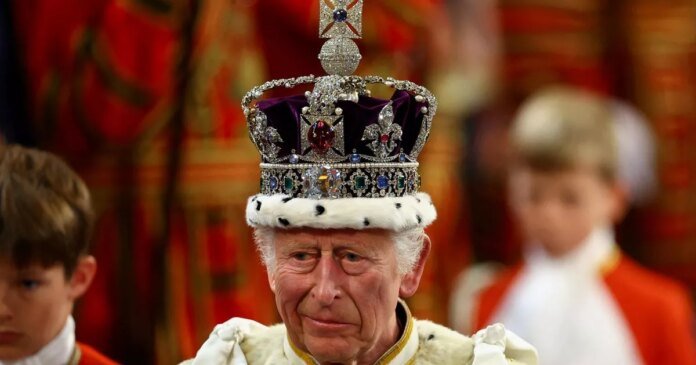Inquiries about the purpose of the Royal Family often lead to the common belief that it primarily serves as a tourist attraction. Despite the slim chance of encountering a royal figure, locations like Versailles continue to draw visitors even after their monarchs’ historical fate. Speculation arises on the potential for better Tripadvisor ratings if tourists could access more royal spaces, considering the allure of Madame Tussaud’s as an alternative.
Constitutional experts, a newfound breed post-Brexit, may highlight the monarch’s role in law approval, association with controversial figures, and leadership of the Church of England, a position widely unpopular among Britons. The notion of the Royal Family being a cost-effective institution, offering entertainment and value for the populace, is a narrative ingrained over time to justify their existence.
Recent scrutiny has spotlighted Prince Andrew’s lavish lifestyle at Royal Lodge, raising questions about his financial arrangements and the taxpayers’ subsidy to sustain his opulent living without visible means of income. The revelation that Andrew has not paid rent for two decades has sparked discussions on the fairness of such arrangements and the public’s return on investment in the monarchy.
The financial transparency of various royals remains a mystery, with Prince Charles and Prince William standing out for their apparent self-sufficiency through inherited wealth and properties. The disparities in how each royal manages their finances, from tax obligations to public disclosures, hint at a complex financial web that shields some and exposes others to public scrutiny.
While the Royal Household discloses certain financial aspects through annual reports, critical details such as rental agreements, security costs, and personal expenses remain obscured from public view. Calls for parliamentary debates on these matters are cautiously raised, acknowledging the delicate balance between accountability and the traditional autonomy enjoyed by the monarchy.
The lack of transparency surrounding royal finances, coupled with the exemption from public scrutiny under the Freedom of Information Act, fuels debates on the need for greater accountability and adherence to standards of public life. Suggestions for a more open financial framework and adherence to governance principles aim to address public concerns and ensure a fair and accountable monarchy.
As discussions persist on the monarchy’s financial intricacies, the proposal of a subscription-based livestream of royal activities emerges as a potential solution to enhance transparency and generate revenue. By embracing modern media platforms, the Royals could leverage their appeal to boost tourism and public engagement, ushering in a new era of transparency and financial sustainability for the monarchy.

